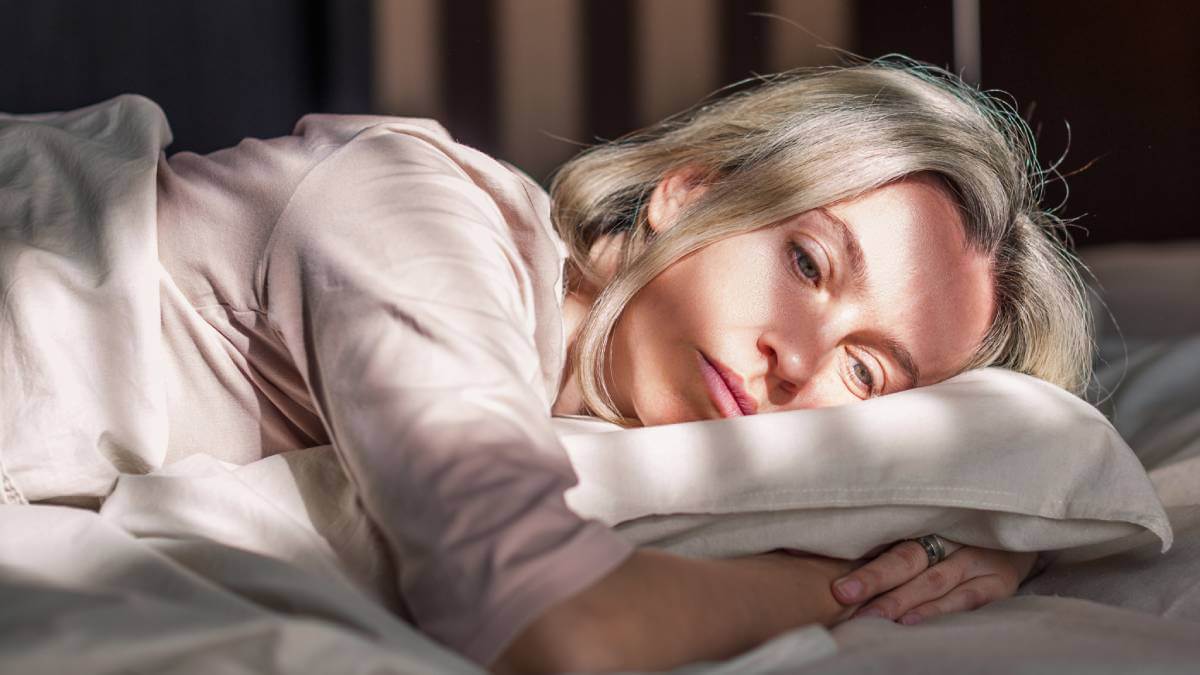Sleep makes up about a third of your life. And it does a lot more for your health, your happiness, and your overall wellbeing than you might think.
Poor sleep can put you at risk for obesity, heart disease, dementia, depression, an increased risk of accidents, and premature death.
Most adults require approximately eight hours of sleep per 24 hours, but sleep needs may range from about six to nine hours.
Sometimes, this isn’t possible and you might be flagging after a long night of tossing and turning.
Luckily, there are some things you can do to make the day a little easier and try to ensure you get a better night’s sleep the next night.
Don’t hit the snooze button
Those extra 10 minutes of restless sleep will probably not do much except make you feel more rushed in the morning if you have to be up and out the door.
Don’t sleep in
If you don’t have to get to work or decide to take the morning off, it can be tempting to stay in bed and try to catch up on the sleep you missed during the night. But sticking to the same sleep and wake cycle every day is so important.
Keeping consistent sleep and wake times will regulate sleep and help you maintain quality sleep. Your body craves routine, and inconsistent wake-up times can cause significant sleep issues as your wake-up time determines when you are able to go to sleep that night.
When you wake, you set your body clock rhythm for the next 24 hours, including your sleep rhythm. For adults, this is about 16 hours after waking. For example, if you wake late in the morning, at around 10am, you may not be able to fall asleep until about 2am the following morning.
Do get some sun
Morning sunshine isn’t just lovely to look at; the sun’s rays provide biological benefits which are essential to your functionality, many of which may hold the key to making your life healthier, easier, and more enjoyable. For one, it helps your body set its clock.
When people are exposed to sunlight or very bright artificial light in the morning, their nocturnal melatonin production occurs sooner, and they enter into sleep more easily at night.
It can also help counter sleeplessness by boosting your mood. So if you want to get more sleep tonight than last night, wake up and get some sun on your face.
Do drink caffeine, but not too much
If you skip your regular morning coffee for fear of it keeping you awake again at night, you may feel even groggier. It could also make you irritable and give you a headache. So have your usual coffee at the usual time.
You might be tempted to have an extra cup but remember, caffeine stays in your system for several hours.
“Our sleep-deprived, work-driven society means a growing number of people turn to caffeine to provide them with energy,” says personal trainer Emily Servante.
“A rule of thumb we like is to stop all caffeinated products after 2pm. Caffeine has a half-life of six hours, so if you consume a cup of coffee (100mg) at 2pm, you’ll still have 50mg in your bloodstream at 8pm. The problem is, most people’s caffeine habits are so excessive they’ll drink tea and coffee all through the day to keep them going. This will negatively impact sleep and their ability to experience deep, quality sleep.”
Do get some exercise
Sleep and exercise are interlinked, and exercise could potentially be the key to a good night’s kip.
“Moderate aerobic exercise increases our slow wave or ‘deep sleep’, in which brain and body are able to refresh and revitalise,” explains Dr Sarah Davies.
“Exercise also helps to calm your mood and settle the mind, preparing you for a restful and satisfying sleep.”
You might think that exercise would make you more tired during the day, but having a regime and working out can also battle daytime sleepiness and fatigue. Exercising can actually boost your energy levels, which means you’ll be more tired by bedtime, and drift off more quickly – subsequently promoting higher quality sleep.
It’s recommended to stop exercising at least 90 minutes before you plan to go to bed, as this allows endorphin levels and core body temperature to return to levels that are favourable to sleep.
Do take a nap
In general, the best nap length for adults is about 20 minutes and no longer than 30 minutes. Sleeping for 20 minutes allows you to get a bit of light sleep to boost alertness without entering into deep sleep. Waking up from deep sleep can cause grogginess and actually worsen sleepiness.
Set an alarm and keep in mind that a nap of any length, especially later in the day, can make it harder to get to sleep in the evening.
Do eat a light but balanced dinner
Big dinners make you temporarily drowsy but prolong digestion, which can interfere with a good night’s sleep. It’s best to eat your biggest meal before mid-afternoon and have a light evening meal of 500 calories or less. Include some protein such as chicken, extra-lean meat or fish at dinner to help curb middle-of-the-night hunger.
Don’t have too much screen time
Too much of any light after the sun goes down can mess up your sleep, but the blue light given off by your smartphone, computer, or tablet is especially bad. Try reading or meditating to relax before sleep.
Do chill out before bedtime
Start to relax as bedtime approaches: no bright lights or stressful talks or activities. All of that can make it hard to fall asleep. Try to keep your bedroom dark and quiet. And cool, too: 18°C to 20°C is ideal for most people.
How much sleep do you get each night? Do you wish you could sleep more? Let us know in the comments section below.

